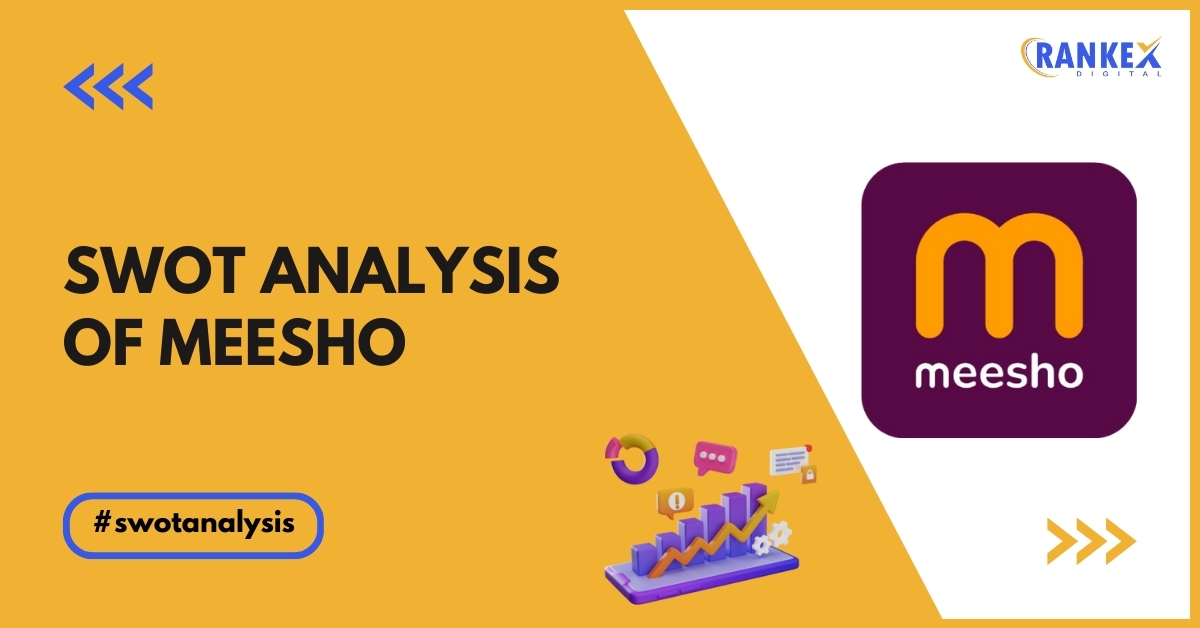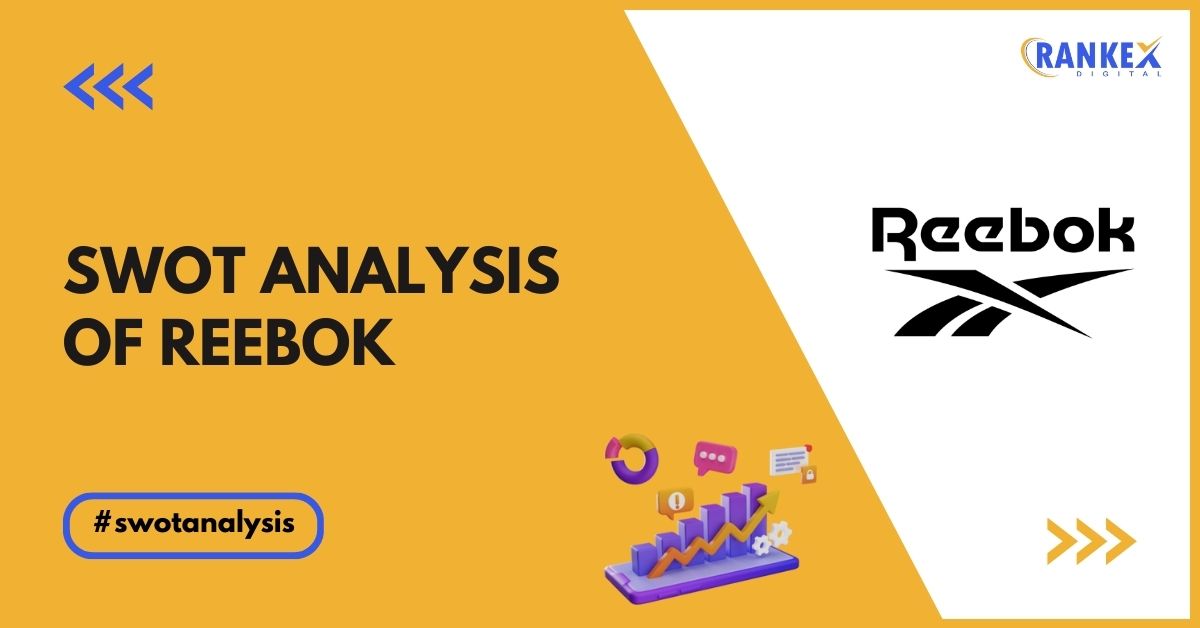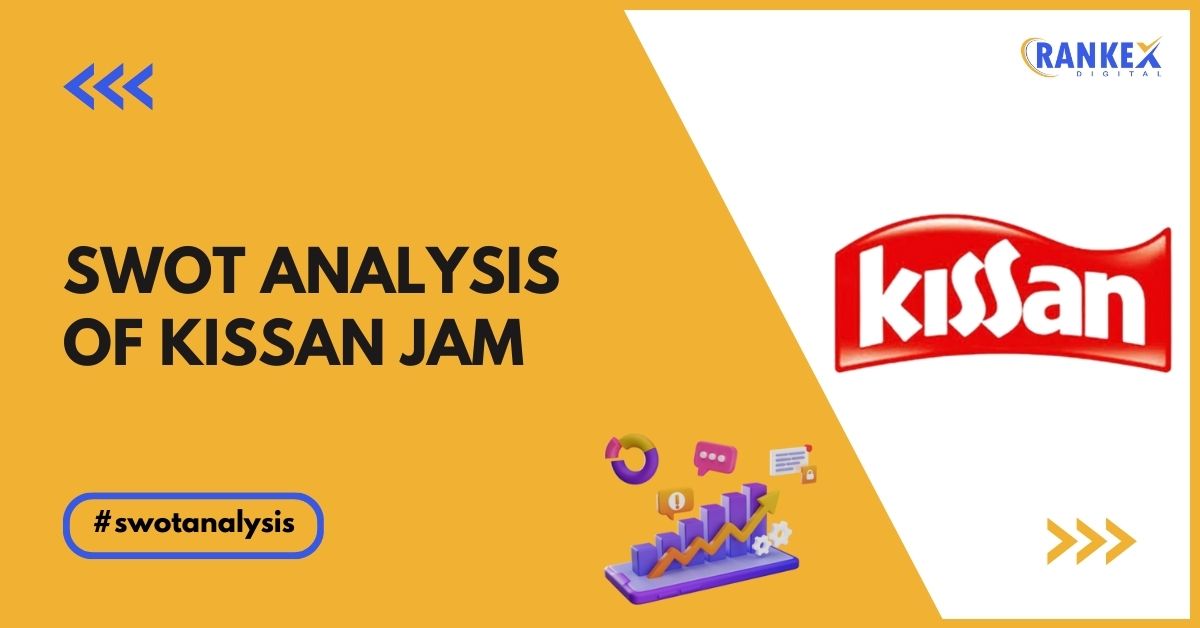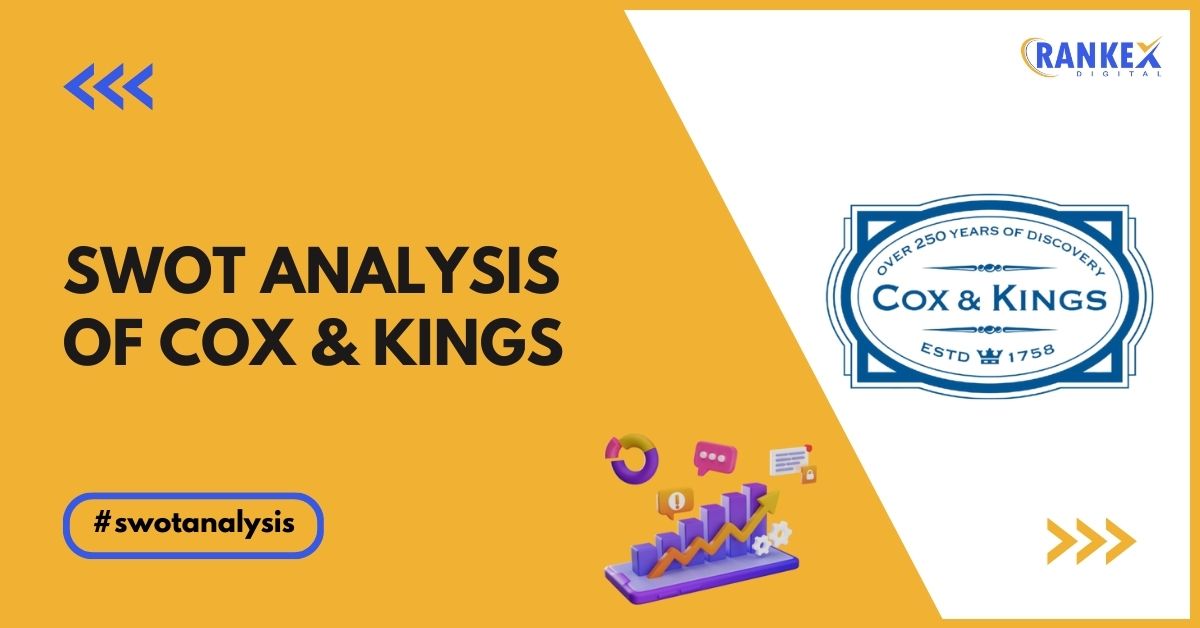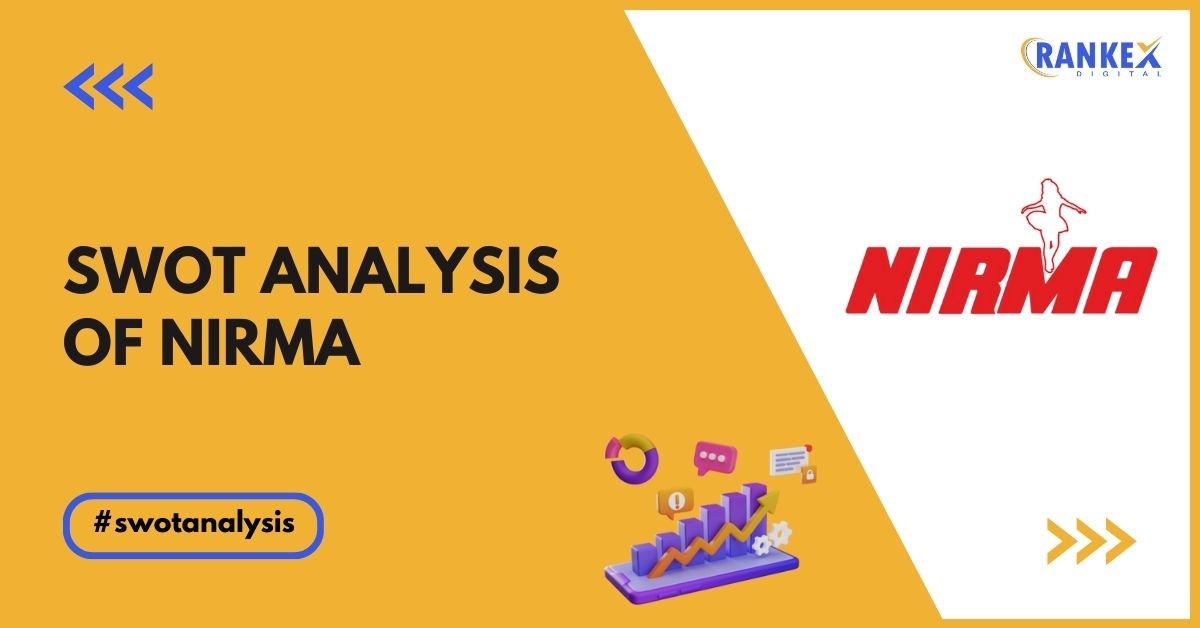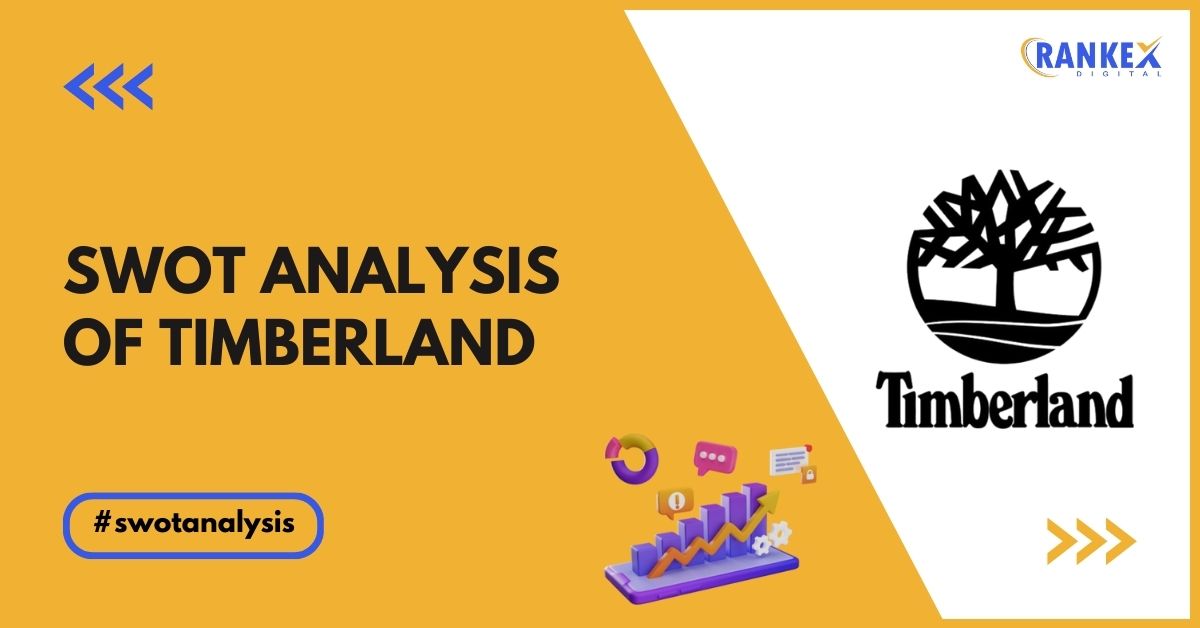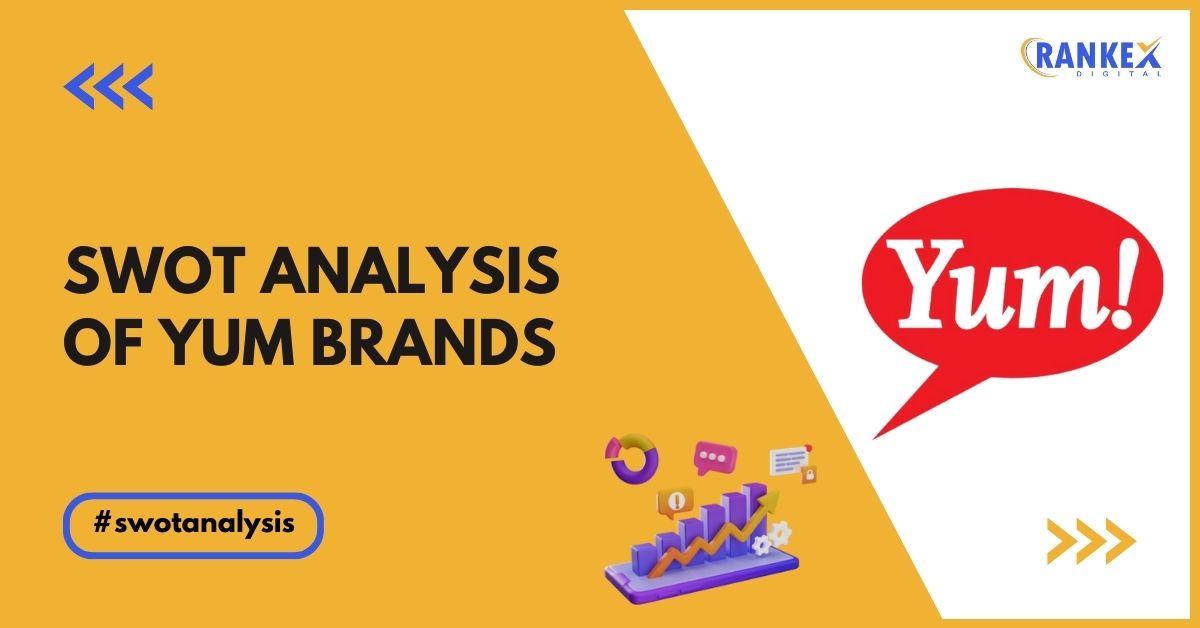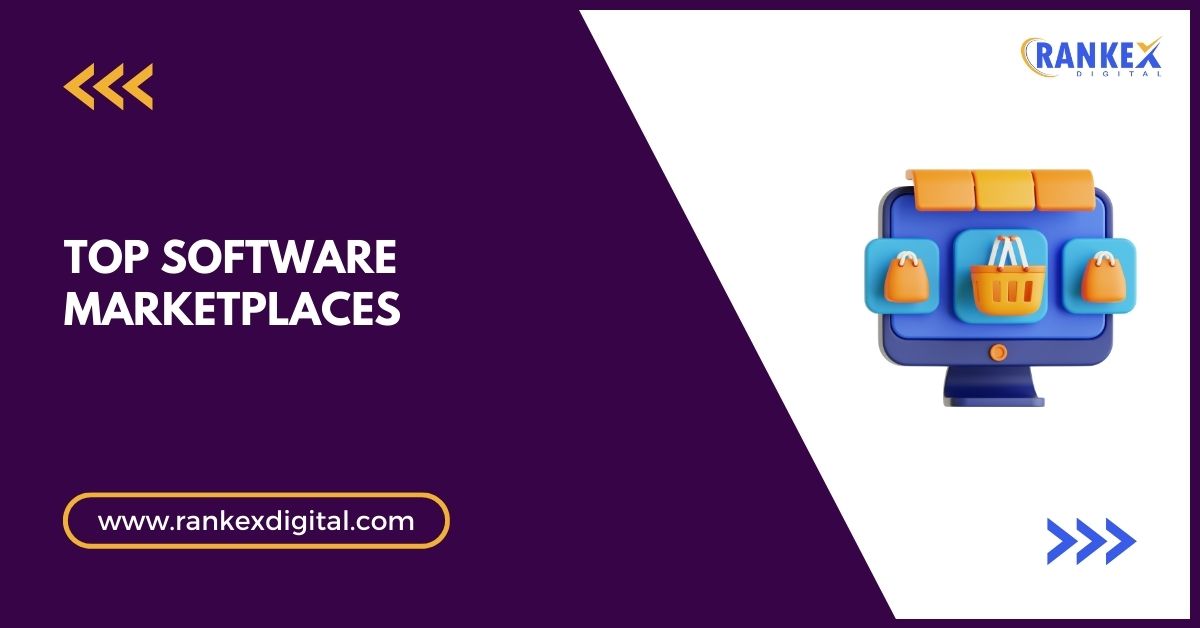Meesho, a rapidly growing social commerce platform, has gained significant traction in India over the last few years. Founded in 2015, the company provides a platform that enables entrepreneurs, particularly women, to start their own businesses by reselling products through social networks like Facebook and WhatsApp. Meesho’s ability to tap into the potential of social commerce, coupled with its innovative business model, has positioned it as a major player in the Indian e-commerce space.
Understanding the strengths, weaknesses, opportunities, and threats (SWOT) of Meesho is key to analyzing its competitive edge and future growth potential. This article delves into an in-depth SWOT analysis of Meesho.
In this blog
Overview of Meesho
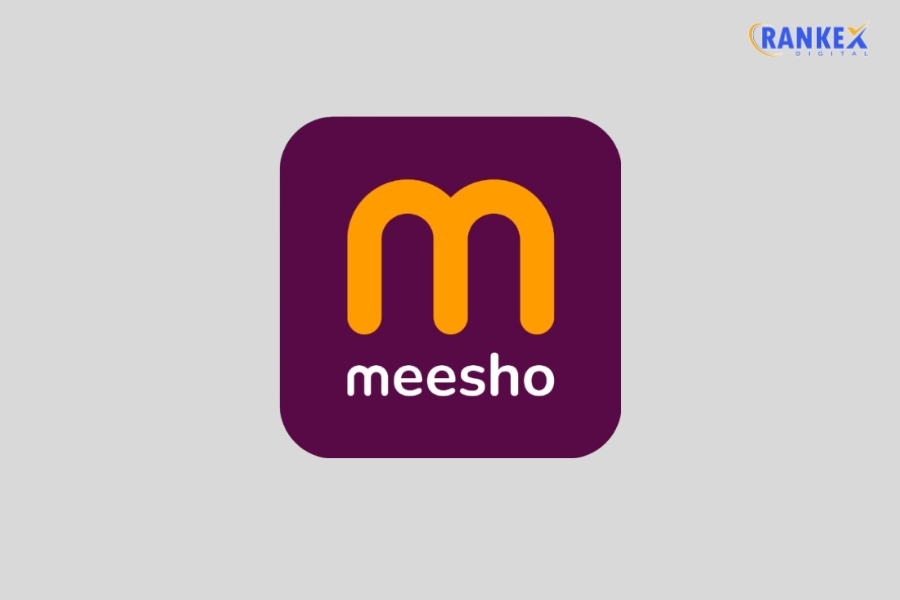
Founded by Vidit Aatrey and Sanjeev Barnwal in 2015, Meesho operates as a social commerce platform that empowers individuals to become resellers and sell products directly through social media channels. Meesho has grown rapidly, leveraging a unique business model to cater to the middle- and lower-income segments of India, where access to traditional e-commerce platforms may be limited.
Meesho’s platform allows small businesses and individual resellers to access a wide range of products, from fashion and accessories to home decor, which they can resell to their social media contacts, earning a profit margin. The company also focuses on providing a robust delivery and payment infrastructure to make the process seamless for its resellers.
Quick Stats About Meesho
| Attribute | Details |
|---|---|
| Founder | Vidit Aatrey, Sanjeev Barnwal |
| Year Founded | 2015 |
| Origin | Bangalore, Karnataka, India |
| No. of Employees | 2,000+ |
| CEO | Vidit Aatrey |
| Market Cap | Not publicly listed (raised funding from investors such as SoftBank, Facebook, and Prosus Ventures) |
| Revenue | $300 Million (estimated for FY 2023) |
Current News of Meesho
- Expansion into New Markets: Meesho is focusing on expanding its reach beyond metros and tier-1 cities to tap into smaller towns and rural areas, where it sees substantial growth potential.
- Technology Enhancements: The company has been heavily investing in technology to improve its logistics, payment systems, and overall user experience on the platform.
- Funding Rounds: Meesho has raised over $1 billion in funding and is considered one of the leading players in India’s social commerce space.
SWOT Analysis of Meesho
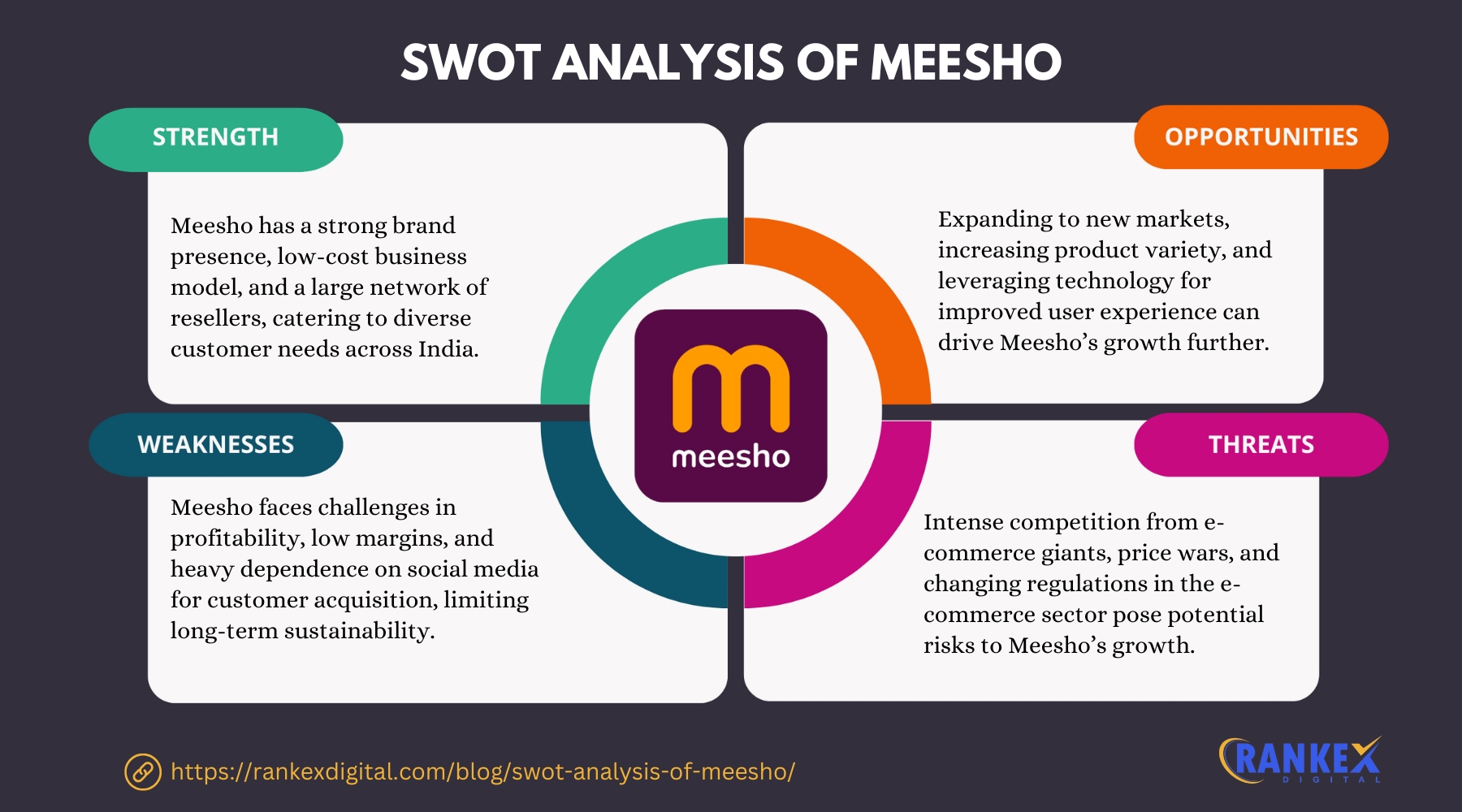
Strengths of Meesho
- Strong Social Commerce Model: Meesho’s core strength lies in its business model that allows individuals, especially homemakers and small entrepreneurs, to sell products via social media platforms like WhatsApp, Facebook, and Instagram. This model connects social selling with e-commerce, which is appealing to a large group of people who may not have the resources to open a traditional retail business.
- Low-Cost Operations: Unlike traditional e-commerce platforms, Meesho does not need to hold stock or maintain physical stores. It operates as a marketplace that connects suppliers and resellers directly with customers, minimizing overhead costs and allowing the company to offer lower prices.
- Expansive Reach in Tier-2 and Tier-3 Cities: Meesho’s focus on smaller towns and rural areas provides an opportunity to tap into underserved markets that traditional e-commerce giants, like Amazon and Flipkart, might overlook. These regions are home to a large untapped customer base and offer significant growth potential.
- Diverse Product Range: Meesho offers a wide variety of products, including fashion, beauty products, home goods, and electronics. This diversity allows the platform to cater to the varied preferences of its large customer base, which ranges from urban to rural areas.
- Backed by Strong Investors: Meesho has attracted investment from high-profile global investors like SoftBank, Sequoia Capital, and Prosus Ventures. This financial backing provides Meesho with the resources needed for expansion, technology enhancements, and increasing brand recognition.
Weaknesses of Meesho
- Dependence on Resellers: Meesho’s business model relies heavily on its network of resellers, who are responsible for marketing, selling, and delivering the products. Any disruptions in this network—such as issues with reseller performance or customer service—could negatively impact the overall business and growth.
- Low Brand Awareness: Despite having a solid user base, Meesho has not achieved the same level of brand recognition as its larger competitors, such as Amazon and Flipkart. Building strong brand loyalty and increasing awareness is an ongoing challenge, especially as the e-commerce market in India becomes more competitive.
- Quality Control Issues: Since Meesho is a platform where third-party resellers sell products, there are inherent challenges in ensuring consistent quality. Issues like faulty products, poor packaging, and customer complaints can arise, which could harm Meesho’s reputation and customer trust.
- Logistical Challenges: Though Meesho has made efforts to streamline its logistics, it still faces significant challenges in terms of timely delivery, order fulfillment, and product returns. The company must address these logistical issues to ensure that customers have a seamless shopping experience, which is crucial for customer retention.
Opportunities for Meesho
- Expanding into New Markets: Meesho has a significant opportunity to expand its presence in rural and tier-2 and tier-3 cities in India, where internet penetration and smartphone usage are growing rapidly. Additionally, it can explore new international markets, particularly in regions like Southeast Asia where social commerce is rising.
- Technology Integration: Meesho can invest in advanced technologies such as artificial intelligence (AI), machine learning, and data analytics to improve the shopping experience, predict customer preferences, optimize inventory, and enhance its supply chain operations.
- Strategic Partnerships: Meesho could enter into strategic partnerships with well-known brands or other e-commerce giants. Such collaborations could increase product variety, enhance supply chain management, and improve brand recognition. By offering more branded products, Meesho could further attract customers who prefer brand names.
- Global Expansion: Given the rise of social commerce globally, Meesho has the potential to expand beyond India. Countries in Southeast Asia, Latin America, and Africa could offer significant market opportunities where e-commerce and social media are becoming more integrated.
Threats to Meesho
- Intense Competition: Meesho faces strong competition from both traditional e-commerce giants like Amazon and Flipkart, as well as new-age players focused on social commerce, such as Trell and GlowRoad. These competitors can easily replicate Meesho’s business model, which makes it harder for Meesho to maintain its market position.
- Regulatory Challenges: The regulatory environment for e-commerce in India and other countries can be unpredictable. Changes in government regulations related to e-commerce policies, data privacy, or taxation could have an impact on Meesho’s business operations, forcing it to adapt quickly to avoid disruptions.
- Economic Downturns: Economic instability or slowdowns in consumer spending can negatively affect Meesho’s sales. As consumer purchasing power drops during economic downturns, discretionary spending on non-essential goods like fashion or home decor may decline, affecting Meesho’s revenue.
- Scalability Issues: As Meesho grows and expands, it may face challenges in maintaining the same level of customer service, quality control, and operational efficiency that it had at a smaller scale. With more resellers, more products, and more customers, the company could encounter difficulties in scaling its operations without compromising the quality of its service.
Frequently Asked Questions (FAQ)
- What is Meesho and how does it work? Meesho is a social commerce platform that allows individuals, especially homemakers and small entrepreneurs, to start their own online businesses by reselling products via social media platforms like Facebook and WhatsApp. Meesho provides the products, delivery services, and payment solutions, while resellers focus on marketing and selling.
- Is Meesho safe for resellers and customers? Yes, Meesho is safe for both resellers and customers. The platform ensures secure payment gateways, reliable delivery systems, and a customer support team to handle issues like returns and refunds.
- How does Meesho make money? Meesho earns revenue by charging a commission on sales made through its platform. Resellers purchase products at a discounted price and earn a profit by selling them at a higher price to their customers.
- What are the benefits of using Meesho for resellers? Meesho offers resellers a low-risk way to start a business with minimal investment. Resellers can sell products without the need for inventory management or upfront costs, and they have access to a wide range of products to resell.
- What types of products are available on Meesho? Meesho offers a diverse range of products including fashion apparel, accessories, home decor, electronics, beauty products, and more. The platform regularly updates its product catalog to cater to different customer needs and trends.
Conclusion
Meesho has emerged as a strong competitor in India’s e-commerce landscape, thanks to its unique social commerce model and focus on underserved markets. By leveraging its strengths, such as a diverse product range and strong financial backing, Meesho has the potential for significant growth in the coming years.
However, challenges such as competition, quality control, and logistical issues remain. By continuing to innovate and focus on customer satisfaction, Meesho can strengthen its position in the market and expand its reach both domestically and internationally.

